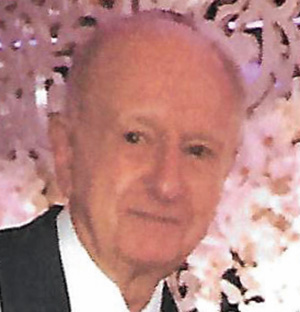
After around 80 years, I do not remember much about my teachers, but I do recollect some faces. I remember hearing about a Studienrat (not quite a professorship) Baer, nicknamed “Teddy” (I think my brother had him as a teacher), who was feared by all students, more so than any other teacher I can recall. My class teacher when I, as a still non-yeshiva boy, entered the Israelitische Volkschule in 1935, was a very kind gentleman. Years later I would meet him frequently in Washington Heights, and also meet his daughter in Englewood. My class teacher when I entered SRH Realschule in 1937 was a lady who was also my English teacher. All students worked very hard to learn the language, knowing that (we at least hoped) we would need it eventually when we got to the US. Little did we boys realize then that once in the US school you would learn more of the language in one month, than in a year in class in Germany.
I want to state that the Publishers Rowman & Littlefield Publishing Group have kindly given their permission for a one-time reprint. It goes without saying that I feel you would find that book very interesting reading.
I hope you will enjoy the description of the “then.”
(Continued from last week)
“During the shelosheth yemei hagbalah (the three days preceding the Feast of Weeks) and during Hanukkah, the young men and the boys were obliged to review what they had studied during that term, and for this the community leaders gave specified gifts of money. Such was the practice until the fifteenth of Ab or the fifteenth of Shevat. After that the head of the yeshiva, together with all his students, the young men and the boys, journeyed to the fair. In the summer they travelled to the fair of Zaslaw and to the fair of Jaroslaw, in the winter to the fairs of Lwow and Lublin. There the young men and boys were free to study in any yeshiva they preferred. Thus, at each of the fairs hundreds of yeshiva heads, thousands of young men, and tens of thousands of boys, and Jewish merchants, and Gentiles like the sand on the shore of the sea, would gather. For people would come to the fair from one end of the world to the other. Whoever had a son or daughter of marriageable age went to the fair and there arranged a match. For there was ample opportunity for everyone to find his like and his mate. Thus, hundreds and sometimes thousands of such matches would be arranged at each fair. And Jews, both men and women, walked about the fair, dressed in royal garments. For they were held in esteem in the eyes of the rulers and in the eyes of the Gentiles, and the children of Israel were many like the sand of the sea, but now because of our sins, they have become few. May the Lord have mercy upon them.
“In each community great honor was accorded to the head of the yeshiva. His words were heard by rich and poor alike. None questioned his authority. Without him no one raised his hand or foot, and as he commanded so it came to be. In his hand he carried a stick, and a lash, to smite and to flog, to punish and to chastise transgressors, to institute ordinances, to establish safeguards, and to declare the forbidden. Nevertheless, everyone loved the head of the yeshiva, and he that had a good portion such as fatted fowl, or capons or good fish, would honor the head of the yeshiva with half or all, and with other gifts of silver and gold without measure. In the synagogue, too, most of those who brought honors would accord them to the head of the yeshiva. It was obligatory to call him to the Torah reading third, on the Sabbath and the first days of the Festivals. And if the head of the yeshiva happened to be a Kohen or a Levite, he would be given preference despite the fact that there may have been others entitled to the honor of Kohen or Levi, or the concluding portion. No one left the synagogue on the Sabbath or the Festival until the head of the yeshiva walked out first and his pupils after him, and then the whole congregation accompanied him to his home. On the Festivals the entire congregation followed him to his house to greet him. For this reason, all the scholars were envious and studied with diligence, so that they too, might advance to this state, and become the head of a yeshiva in some community, and out of doing good with an ulterior motive, there comes the doing good for its own sake, and the land was filled with knowledge.”
By Norbert Strauss













